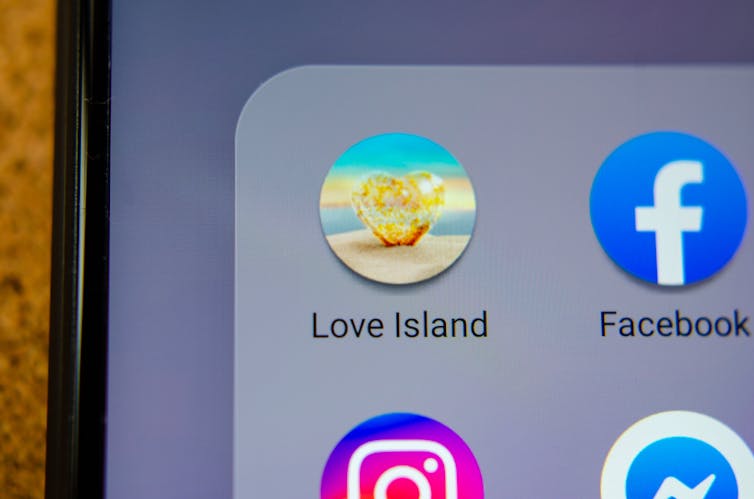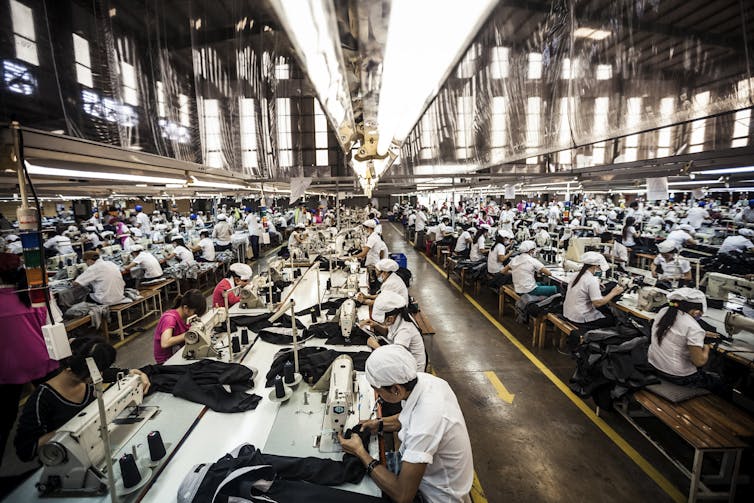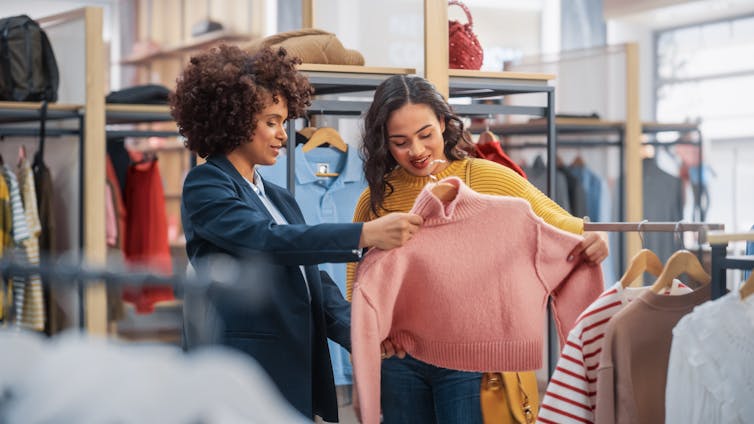A lately introduced partnership between ITV actuality present Love Island and secondhand e-commerce big eBay sends a robust constructive sign about prioritising sustainability over quick style.
After receiving a robust backlash in opposition to Love Island’s promotion of quick style manufacturers comparable to I Noticed It First and Missguided, the present’s govt producer, Mike Spencer, has introduced it’ll be working with eBay in 2022 to dress contributors in its present sequence with “preloved” clothes.
Love Island boasts large viewers scores amongst younger folks. Some 43% of Love Island viewers are underneath 30, and 16-34 year-olds made up one-third of viewers of the sequence premiere on June 6. So the present has the facility to affect younger folks’s purchasing habits, largely via the official Love Island app the place viewers can “store the present” to search out magnificence and style gadgets promoted by contestants. Producers hope that by linking viewers to eBay – the place they’ll discover a curated collection of “Islander-inspired” outfits – they’ll be inspired to purchase secondhand as a substitute.

Shutterstock
This can be a small step in the best path in the direction of making sustainable life extra accessible and enjoyable. However extra must be finished to be able to shift the pervasive affiliation between widespread tradition and consumerism.
Attracting sustainable customers
Love Island and its influential contestants, together with PrettyLittleThing inventive director Molly-Mae Hague, are identified to drive style developments. In earlier years, on-line style gross sales have grown by greater than one-tenth throughout the eight-week summer time interval when the present airs. Early insights recommend this yr might be no totally different, with eBay searches for attire just like these seen on contestants up by as a lot as 200%.
Sustainability advocates, together with former Love Island contestant, mannequin and style influencer Brett Staniland, have argued that the present endorses a throwaway angle to style. For a lot of, this was epitomised by the present’s promotion of Missguided’s £1 bikini, priced low sufficient to be thought of disposable. In distinction, the present’s resolution to accomplice with eBay ought to appeal to a brand new viewers for the reuse tradition message in comparison with the folks sustainability messaging normally targets.
Learn extra:
Love Island ditches quick style: how actuality celebrities affect younger customers’ habits
Sustainable consumption entails recognising the environmental influence of our life and resolving to eat much less. Shifting away from disposability and in the direction of reuse throughout all sectors of society – not simply style – depends on cooperation between governments, companies and residents.
However motivating folks to take environmental issues into consideration on the subject of purchasing is difficult, not least as a result of we’re bombarded with photographs that equate success or “the nice life” with excessive ranges of fabric consumption. Advertisers work onerous to persuade us that we’d like the most recent automotive, gadget or style merchandise to stay a satisfying life.

Flickr/ILO Asia-Pacific, CC BY-NC
One other problem is to make sustainable life interesting to the mainstream, somewhat than simply to prosperous middle-class customers, who’re already most receptive to sustainable consumption campaigns.
Learn extra:
5 methods to shift customers in the direction of sustainable behaviour
Dwelling sustainably is commonly taken to imply giving up the issues that we like (together with automobiles, meat or holidays) and permitting our particular person freedoms to be curtailed for the widespread good. And critiques of consumerism have linked good citizenship with restrained spending and denial of fabric pleasures.
Collaborations like that between Love Island and eBay – together with different widespread campaigns comparable to wearme30times, which inspires us to solely purchase gadgets of clothes if we’ll put on them not less than 30 instances – can play an enormous function in shifting these concepts. Importantly, they’re typically profitable as a result of they work with shopper tradition in recognising that we purchase garments to talk our identities, show our social standing and keep social relationships (in addition to for enjoyable).

Shutterstock
In addition they faucet into our current anxieties about quick style by introducing different choices. Thinker Kate Soper’s idea of “different hedonism” recognises how, when confronted with the unfavorable results of consumption, it may be deeply satisfying to cut back your influence to learn the world round you. That sense of satisfaction helps problem enduring social stigma surrounding secondhand garments, in addition to promote sustainability amongst these unable to afford high-end eco-friendly style.
Taking it additional
However the influence of this partnership shouldn’t be overestimated. Those that watch the present – however maybe not the information – can be forgiven for lacking it altogether, given there’s not but been any point out of secondhand clothes on Love Island itself. In truth, what’s extra prone to stand out is the attraction of an expensive overseas vacation and the a number of magnificence and style gadgets pictured in dressing room scenes.
And decreasing consumption is unquestionably not the message underpinning the present’s financial system: with huge manufacturers promoting throughout breaks, in-app buying enabled throughout a number of social media platforms and contestants prone to change into model influencers as soon as the present ends.
Learn extra:
Our habit to stuff: How Walmart permits us to destroy the planet
But when it was to lead by instance, Love Island may ditch conspicuous consumption altogether. Since many unsustainable behaviours are pushed by comfort, consolation and social norms, the present may promote collaborative consumption as a substitute.
That might imply group cooking, which cuts meals waste and equipment power consumption, or a “style library” encouraging elevated use of every clothes merchandise. There’d actually be leisure worth in watching contestants swap garments or harvest native produce: and even slog via the British mud in a glamping-style situation. Love Island already exhibits the nice and the dangerous of courting – it’s time for it to get actual about sustainability too.

